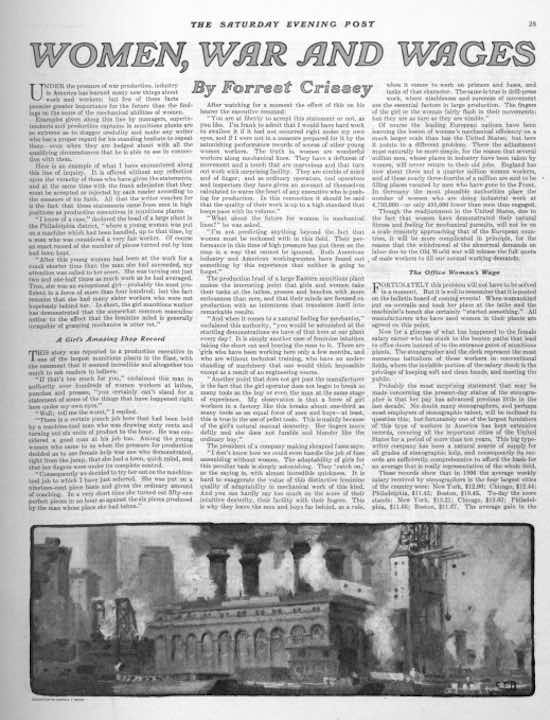100 Years Ago This Week: Were Women Better Workers Than Men?
In early 1917, America was still several months away from entering the Great War, but wartime production was already underway. In article from the January 20, 1917, issue of the Post, the author was astonished to find that, when women stepped into factory jobs normally done by men, they performed as well as the men, if not better. Even as he reported anecdotes from various factory managers, he cast doubt on the idea, noting that the claims “seemed incredible and altogether too much to ask readers to believe.”
“If that’s too much for you,” exclaimed this man in authority over hundreds of women workers at lathes, punches and presses, “you certainly can’t stand for a statement of some of the things that have happened right here under my own eyes.”
“Well; tell me the worst,” I replied.
The manager went on to tell the tale of a woman who could put out 51 pieces per hour to her male predecessor’s measly six. On top of that, he paid her only 19 cents an hour compared to the man’s 60 cents. (Women also broke fewer tools.)
The need for women in munitions plants created more demand for “typical” women’s jobs – stenographers and bookkeepers. Workers could be choosey, and wages began to rise; the average pay for a stenographer was $13 a week — 60 cents more than a decade earlier.
Demand was great enough that women could be assured that not even age was a detriment. An employment agent pointed out, “Do not think for a moment that gray hairs are a handicap to a woman applicant for a position of this class and character. If anything gray hairs count as a help.”
The article moves on to average wages for other workers of the era, including railroad station agents ($75/month), grocery clerks ($50/month), and bank executives ($200/month). But the larger issue of women entering the workforce – and perhaps staying – loomed large. As one manager observed, “Both American industry and American workingwomen have found out something by this experience that neither is going to forget.”
